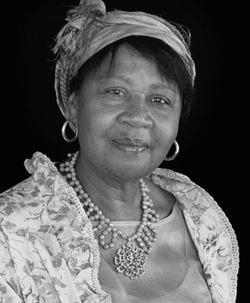Immigrant Authors
We are a country of immigrants, and our stories of starting over in a new land have inspired generations of writers. For most of our history, those novels and stories involved a sharp divide between the old world and the new. But life is messier than that, especially in the modern age. For Jamaica Kincaid and Yelena Akhtiorskaya, there’s no such thing as a clean break. Whether through family visits or just the burden of memory, the influence of the old world constantly intrudes on their characters’ new lives, challenging them to straddle the divide as best they can.
Jamaica Kincaid has always been a writer with a foot in two worlds. Her first novel, Annie John, follows the title character’s coming of age in Kincaid’s native Antigua, while her second novel, Lucy, focuses on an immigrant au pair working for a wealthy New York family who refuses to read letters from home but still finds herself tied to the world she left behind.
Kincaid’s own life has also been one of upheaval. Raised in Antigua, she was pulled out of school and sent to America at age seventeen to earn money for her brothers’ education. While that could easily have derailed her potential, Kincaid took her future into her own hands and charted a new course. After working as an au pair in Scarsdale for several years, she began publishing her writing in 1973, earning a place for herself on the staff of the New Yorker and defending her success against those who couldn’t believe a young, black, immigrant woman belonged at the prestigious journal.
Despite often writing from the perspective of an outsider, Kincaid chose to be an insider when she converted to Judaism as a young mother of children being raised Jewish. In a 2013 interview with Tablet, she explained, “a rabbi told us we couldn’t be buried in the same cemetery. And I thought, ‘what if there’s a Jewish heaven and I’m in the other heaven and have to send them letters?’ I couldn’t bear to be separated from them.”
Although she regularly draws upon the details of her own life to create her fiction, Kincaid transforms that material with experimental techniques that give each book, story, and essay a life of their own. Her most famous short story, “Girl,” is told entirely in second person as a set of marching orders from a critical mother to her young daughter. In Annie John, events are arranged by subject, not chronology, as the teenage protagonist struggles to understand the mysteries and secrets of the world of grown-ups. And in See Now Then, past, present, and future bleed into one another with the lyric grace usually found in poems, not novels.
While such experimentation makes reading each of Kincaid’s works its own adventure, what has distinguished her writing throughout her career has been the unflinching honesty of her voice. In fiction and nonfiction, Kincaid has shifted back and forth between America and the West Indies, between her family of origin and the family she created later in life, but always through the lens of an outsider, able to step back and see both worlds clearly and critically. It’s that unique clarity that makes reading her work such a powerful experience.
At first, Yelena Akhtiorskaya resisted the adage to “write what you know.” After all, what mainstream literary audience would want to hear about the grinding daily banalities of life in the Russian and Ukrainian expatriate community in Brooklyn? But when she finally began writing authentically, capturing the frustrations and disappointments of the immigrant experience with her brilliant eye for detail and quiet flashes of humor, the response was overwhelmingly positive, earning her a nod in 2014 as one of the National Book Foundation’s “5 Under 35.”
Akhtiorskaya immigrated to the US from Odessa with her family at age seven, in the flood of new arrivals following the collapse of the Soviet Union. It was while she was working towards her MFA at Columbia University that friends began urging her to stop writing about characters from “Anytown, USA” and start drawing on her own, rich background.
What strikes critics most often about her work are her sentences, each ringing with details that conjure her characters and wry observations that breathe life into her scenes—the overripe apricot smell of a sick woman, the wet, tiny joint passed around at a party. But those sentences work because they’re just one aspect of Akhtiorskaya’s authorial voice, describing her characters’ lives and thoughts with rare incisiveness.
In her complex and ambitious debut novel, Panic in a Suitcase, published in 2014, three generations of the Nasmertov family grapple with the problems of starting over in a new land. As they build new lives in America, their son Pasha’s visits from Odessa force them to confront the fact that they haven’t assimilated into American society or found the opportunities they’d dreamed of, they’ve simply banded together with other struggling transplants to recreate a microcosm of the Ukraine they fought so hard to escape.
Many novelists might stop there, by pointing out that the Golden Land is pretty tarnished when viewed close up. But while Pasha may pass judgment on his American kin, he doesn’t escape criticism, either. Akhtiorskaya turns the tables when a young niece visits Pasha in Odessa. Through her eyes, we see the blighted glory of a bygone era fallen to rubble (literally, in the case of the family’s old vacation home) and never rebuilt. Like Jamaica Kincaid, Akhtiorskaya uses her rare insight and deft technique to show both old- and new-world communities in a very human light, revealing their flaws without demonizing one or idealizing the other.




